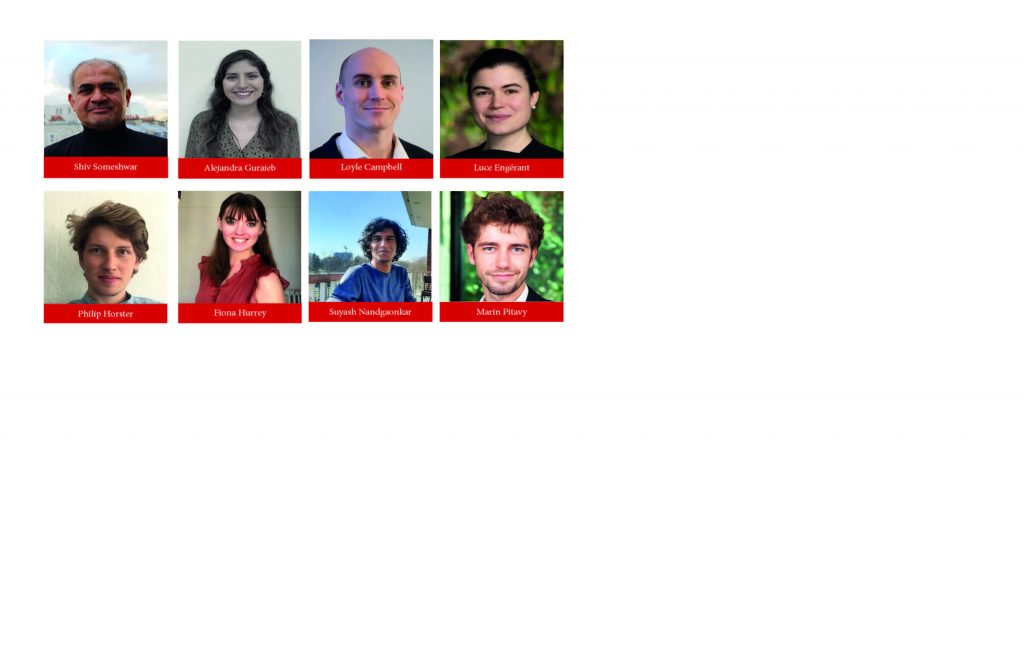
What was it really like at COP26?
24 November 2021
Resilience for Peace
26 November 2021One needs to ask: “Is it just economic productivity you are measuring, or did you look also at the human rights cost and ecosystem services?”
The second Chair and Students’ Roundtable was held on November 10th in person at Sciences Po. The topic was “Why do government policies/plans for sustainable development mostly end in failure?”.
Participants of the Roundtable were PSIA students Fiona Hurrey, Hannah Emerson, Loyle Campbell, Luce Engérant, Marin Pitavy, Philip Horster and Suyash Nandgaonkar, with Alejandra Guraieb (Research Assistant to the Chair) and Shiv Someshwar (Chairholder)
Discussion Highlights:
- When considering “Why do government policies/plans for sustainable development mostly end in failure?”, our collective reflection brought up issues such as incoherence, lack of intention, lack of specifics, failure to consider “the big picture”, lack of data and evaluation measures, bureaucracy (which limits innovation), the fact that individual goals might not be enough for what we need globally, clandestine economies, and fairness/ equity not being considered/correctly addressed.
- Universal sustainable development policies often fail when they are applied to highly diverse contexts. Policy success requires specificity and intimate contextual knowledge on numerous local factors including politics, needs, values, habits, environments, and ecosystems.
- The ecological transition is not necessarily profitable in short term; however, it should not be a motive of inaction, as late adaptation will be much more costly.
- Many policies require time to be efficient: what looks like a failure in short term can finally prove to be successful a few years later and after some adjustments.
- Some of the participants of the roundtable believe that the concurrent trends of rising inequalities, automation, unemployment, and desire for a fair climate transition, should push us to consider universal basic income as a climate policy: a means to decouple working a specific job from the ability to earn a living, for all.
- Most sustainable development policies and plans on the table today seem to lack coherency: they do not address the deep societal changes necessary to deal with the size of the climate problem.
- Moving forward, we need to recognize the hard work on climate change coming from a multitude of actors (e.g., engaged civil servants, community members, youth, driven business people etc.). It is important to credit policymakers when they do something good.
- There are multiple tradeoffs, for instance between policy framing and support, credit and accountability, government capacity and the market, global actions and local contexts, that have proved very difficult to overcome so far and most be acknowledged. Win-win approaches are not totally honest about the cost. A level of honesty is required.
- Lack of funding is sometimes more about difficulty to access resources.
- Essentialism (good vs. bad) is not good for sustainability policies. Not everything can be seen as either black or white.
- There is a tendency to frame sustainability policies as public relations.
Students’ opinions on our Roundtable!
“The Roundtable was a stimulating experience! All attendees had some fruitful insights to share, and it was great to discuss solutions and issues surrounding sustainable development in a non-classroom context, which allowed to have slightly more free discussions. The organizers were really engaged and valued our opinions. 10/10!”
“Within the context of the COP26 summit, I enjoyed the opportunity to learn what my peers thought about how to hold governments accountable for ineffective policies. It was particularly insightful to hear others thoughts on what they made of the summit and how they think sustainability can be elevated as a policy priority – especially between developing and developed economies.”



